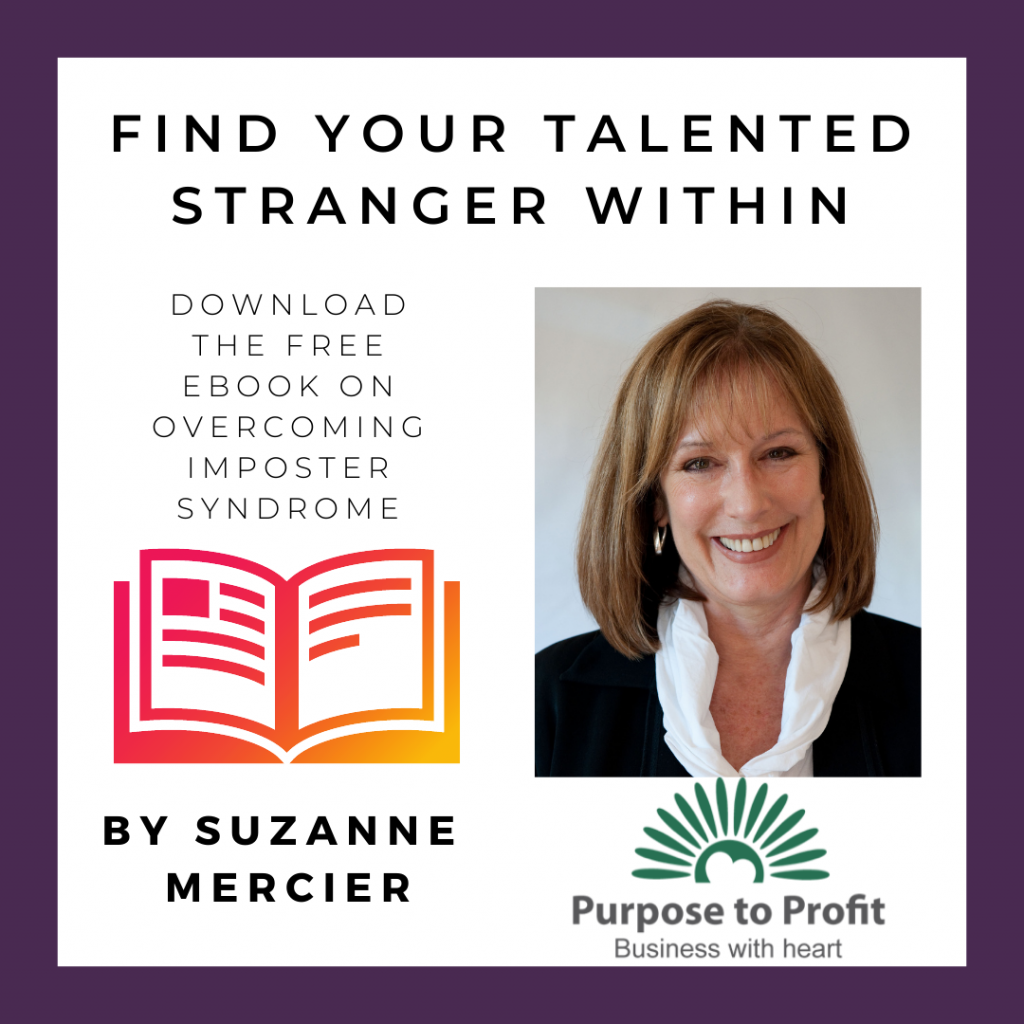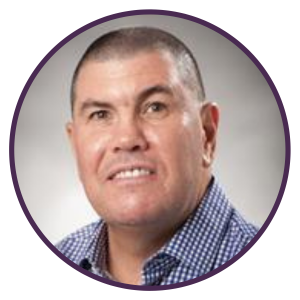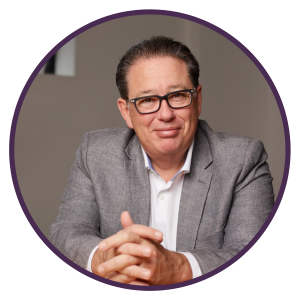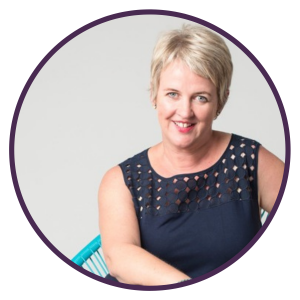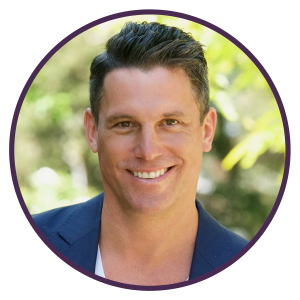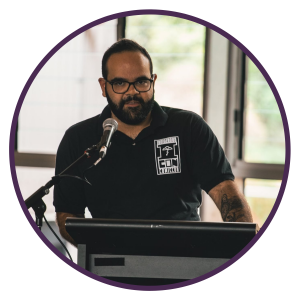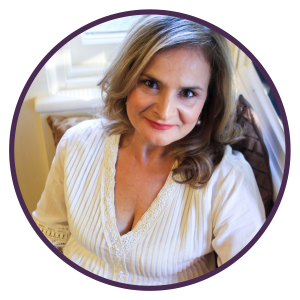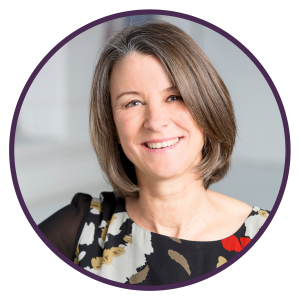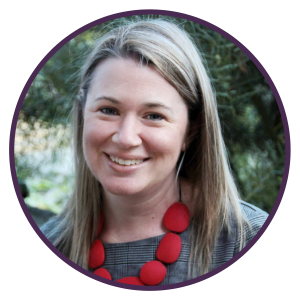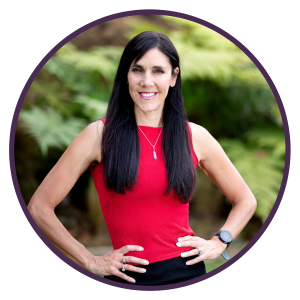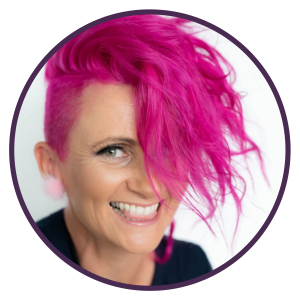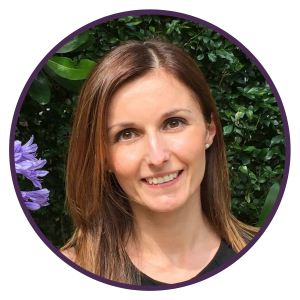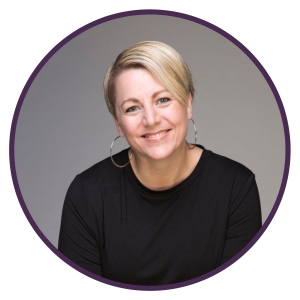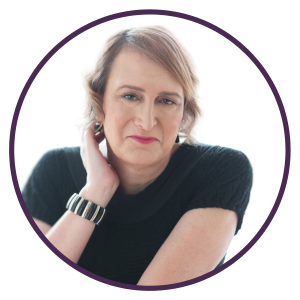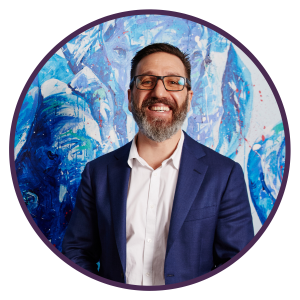Episode 8: Who is Suzanne Mercier?
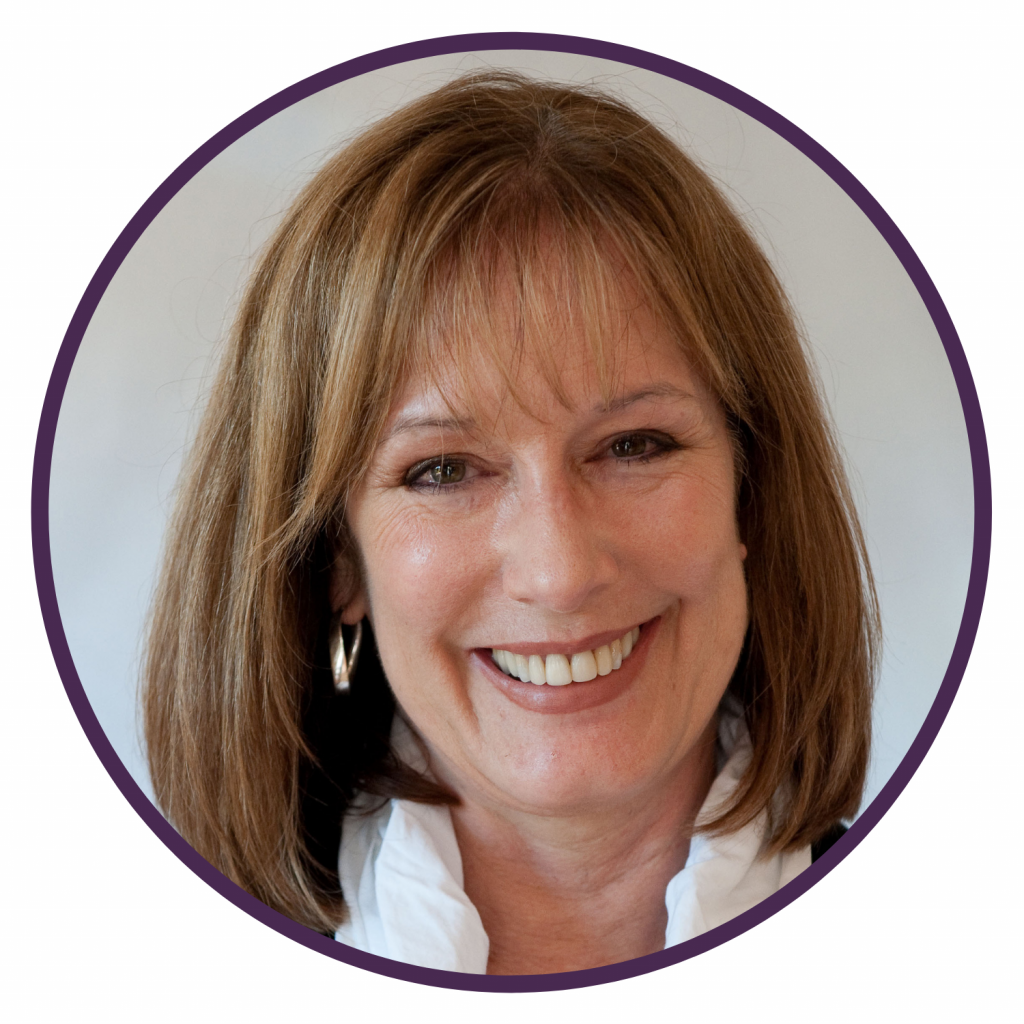
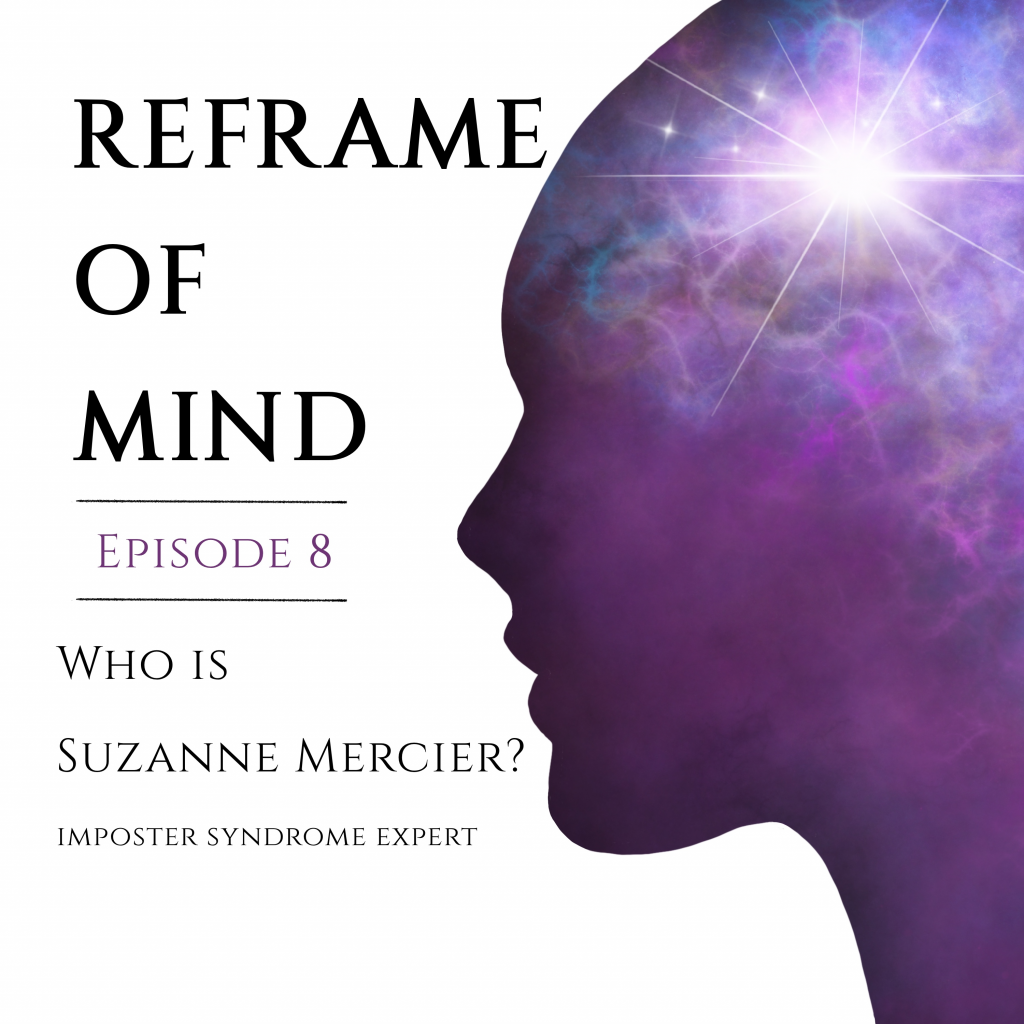
It strikes more people than you know, and it’s been behind the demise of many a promising career.
Imposter Syndrome was first recognised identified in 1978 by Dr. Pauline R. Clance and Dr. Suzanne A. Imesin in their article “The Impostor Phenomenon in High Achieving Women: Dynamics and Therapeutic Intervention”
It’s that irrational fear of failure, that little voice inside your head that tells you you’re a fraud and you’re going to get found out any minute now.
There are some great resources available to help combat this feeling now, and we were privileged to speak to one Australian Expert in the field, Suzanne Mercier, founder of Purpose to Profit about her own personal experience with Imposter Syndrome, and how she is now helping others to combat it.
Suzanne is an expert on identifying and moving beyond limiting mindsets including the Imposter Syndrome, a key barrier to performance. She was the first woman on the Board of Directors at George Patterson Advertising and a strategy planner for the agency, and has worked in high level marketing roles with Coca Cola Amatil and Schwarzkopf. She was responsible for the launch of several well-known fast moving consumer goods brands that remain on the shelves today.
You can connect with Suzanne on her social media directly below:
Jump to: Episode Transcript | Show Notes | Other Guests | Gallery
Follow us now on your podcast app!
Reframe of Mind contains discussion around mental health that may be disturbing to some listeners. If you are concerned about yourself or someone you know, please seek professional individual advice.
Some of the main crisis lines in Australia are listed on our Mental Health Crisis Resources page, including those that operate 24/7 like Beyond Blue and Lifeline.
Guests this episode:
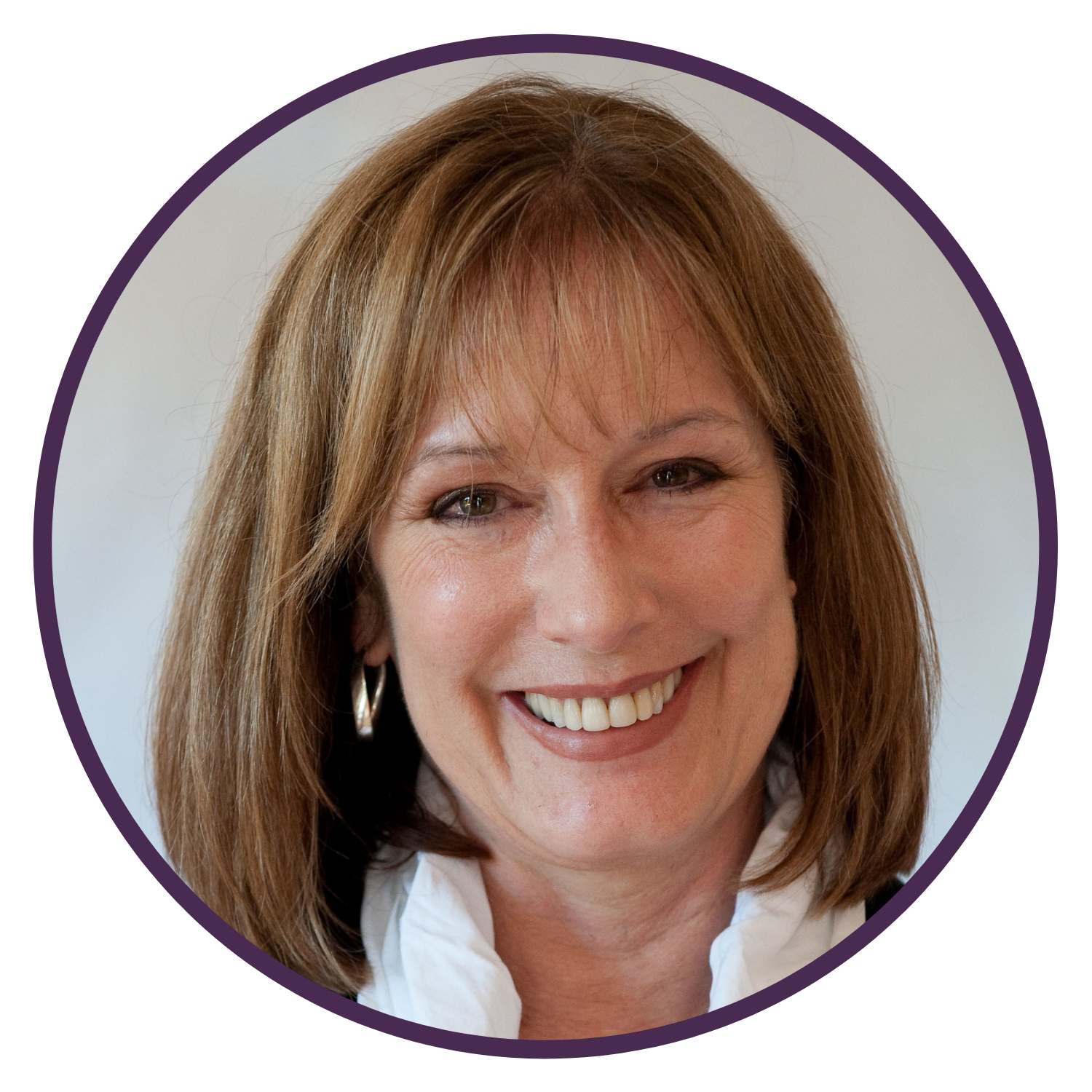
Suzanne Mercier
Imposter Syndrome Expert, Founder of Purpose to Profit
Gallery
Jump to: Episode Transcript | Show Notes | Other Guests | Top of Page
Show Notes:
Here’s some extra things you might not know about Suzanne, as well as some of the things mentioned during the episode.
Suzanne’s Purpose to Profit website.
Read Suzanne’s book: Liberate Leadership.
Watch Suzanne talk about Imposter Syndrome on her Youtube channel:
Read the original research paper from 1978 that we discussed in Reframe of Mind:
Jump to: Episode Transcript | Other Guests | Gallery | Top of Page
Transcript
Louise 0:00
We acknowledge the Yuggera and Kuarna nations as traditional custodians of the land on which we work, live and learn. And they continue in connection with the land waters and community. We pay our respects to them and their elders past and present.
Andy 0:12
All content related to this program is for general informational purposes only and contain stories and discussion around mental health. That may be disturbing to some listeners, if you’re concerned about yourself or someone you know, please seek professional and individual advice and support. More details are contained in our show notes
Suzanne Mercier 0:31
We are often the worst critic that we could possibly have. And other people would never see us that way. And if we treated other people the way that we treat ourselves, we wouldn’t have very many friends.
Louise 0:41
That Suzanne Mercier, founder and CEO of Purpose to Profit. And this is Reframe of Mind.
Andy 0:48
The podcast that cuts through the platitudes and gets to the core of living authentically challenging our assumptions and improving mental health with the guidance of good science, philosophy, and learning from other people’s lived experience.
Louise 0:59
We’re your hosts, Louise Poole, and Andy Le Roy. Have you ever had that feeling that you’re not good enough?
Andy 1:05
Oh you’re not talking about that general feeling of low self esteem?
Louise 1:08
no, this version is more targeted, like when you’ve been recognized for your work and awarded a promotion.
Andy 1:13
While everyone’s passing on, congratulations, you suddenly get this sinking feeling of why would they really choose me?
Louise 1:20
Maybe it sounds like, I don’t feel I’m as qualified as these other leaders I’m working with now.
Andy 1:24
Or worse, it might sound like what if? Or when will they find out that I’m a fraud?
Louise 1:30
You know, I thought it was just me that had these feelings until I started talking to other people about it. What about you, Andy?
Andy 1:35
Oh, yeah, definitely. I mean, networking is another example. I always feel like when people come and talk to me at networking events, I’m thinking I don’t know if you really want to be talking to me. It’s got a good quality connection.
Louise 1:46
Am I actually saying anything interesting, or is it just words coming out? I reckon it’s more common than we think and actually far more common to feel like that than to feel like our old friend Al’ pha douche from the last episode who blusters us in and never questions anything he thinks what does good old Al’ pha douche, no imposter syndrome there?
Andy 2:04
No. And it’s getting a lot more attention nowadays. Would you believe the term was first coined in 1978
Louise 2:10
it was the imposter phenomenon in high achieving women by Pauline Rose clients and Dr. Suzanne Imes.
Andy 2:16
One of the hallmarks of imposter syndrome is an irrational fear of failure.
Louise 2:20
And we found our own Suzanne, Australian author Suzanne Mercier, who’s become an expert in the imposter syndrome field, having worked to overcome her own tendency to feel like an imposter
Andy 2:29
as a highly experienced strategist, leadership champion and expert in the area of human potential. Suzanne Mercia has been improving business and individual performance for more than 25 years.
Louise 2:40
And Suzanne was a pioneer being the first woman on the board of directors at George Patterson advertising and a strategy planner for the agency.
Andy 2:48
She’s worked closely with some leading brands and had some pretty high level marketing roles with the likes of Coca Cola hematol and Schwarzkopf, and she was responsible for the launch of several well known products that are still on our shelves today.
Louise 2:59
So Suzanne has run her own business for 20 years and for the past 15 years, has focused on speaking training, coaching and facilitative consulting to create sustainable and profitable businesses.
Andy 3:09
A part of her mission is to liberate leadership and identify potential to enhance business performance. Pretty impressive, huh?
Louise 3:15
So how does someone so successful even begin to feel like she’s an imposter? Good question.
Andy 3:19
Well, we started our chat with Suzanne wanting to explore the fact that more than 70% of people experienced impostor syndrome.
Louise 3:27
What are the biggest statistics, I suppose that stood out when we were researching imposter syndrome is that more than 70% of people experienced that at some point in their career, but we’re not talking about it, though are we?
Suzanne Mercier 3:38
No, it has a sense of shame attached to it. I think. So most people don’t really tell anybody else. And they think they’re the only ones that are experiencing it.
Andy 3:45
And it comes down to mindset as well. I remember reading through one of your responses as well that around 85% of success of any kind comes down to the mindset that we hold. Is that right?
Suzanne Mercier 3:56
Absolutely. Yes, absolutely. I think that we’re talking about the imposter syndrome. It’s a persistent belief that we’re not good enough. So some people feel that that experience of not good enough when they are in a different area, they’re doing a new job or something like that. So they’re outside their comfort zone, but when they get used to the new job, then they’ve just expanded their comfort zone and they get to feel quite comfortable. Somebody who experiences the imposter syndrome feels they just can’t see why they’ve been given the opportunity or they’re just not able to internalize their success so they remain uncomfortable. And so it’s a persistent belief that they’re not good enough it’s not there all the time. It’s latent until something that causes them to feel uncertain occurs and then they react or then they’re triggered into feeling that they’re not good enough. So they can be quite comfortable and quite confident, one minute and then something happens in their external environment and they’re suddenly feeling that they’re not good enough and all the awful bits that go with that which I’ve certainly experienced myself.
Andy 3:57
Are some triggers more common than others?
Suzanne Mercier 4:02
Imposter Syndrome some common characteristics, the triggers subjective. So depends on how we’ve been raised, what areas of sensitivity we developed, and, how we respond to those or what we made those mean. So the literal situation will be subjective, but there are some patterns that come through. So perfectionism is one. And you know, we had that brief chat before about that, and perfectionism is that the idea that we can’t even actually describe, we don’t know what it is, you know, we just know that we haven’t got it, we’re not there. There’s things that are wrong with what we’re doing. And we’re making mistakes that we just aren’t there. So instead of focusing on any improvement that we’ve made, since we started working on a particular project, or in a particular area, what we focus on is what’s actually missing for us the bit that would get us to perfection that we can’t even describe. So what we do is reinforce that feeling of not being good enough. So that’s one of the triggers. From that comes judgment and an extensive fear of judgment for many people who experienced the imposter syndrome. Because if I’m judged, then I might be found wanting, or they might actually confirm that I’m really not good enough. And I’m really hoping secretly, that that’s not the case. It’s just that that’s how I feel. And so then we’ve also might have a critical inner voice that comes along with that, that keeps us in check that make sure that we you know that we avoid situations, or we handle situations very quickly, that make us feel uncomfortable, we might compare ourselves to others. So there are definitely a number of those things. And probably the biggest thing is that we will tend to give more credence to somebody externally, then we will do our own judgment, we allow somebody else to define whether we’re good enough whether we we deserve something, that sort of thing. Instead of us deciding for ourselves whether we did something well, always can improve, but know whether we did it well or not. So that means that we tend to take things quite personally as well. And I say we because I was probably the biggest, one of the biggest sufferers of the imposter syndrome, I have a 10 question checklist that I give people when when we’re talking about the imposter syndrome, and I say anything over three, and you’ve experienced it at some stage, and I get up around the nine I did originally. So I remember talking at a conference and this woman saying, Oh, I got 10 out of 10. I got 10 out of 10. And she was so excited. And I said ‘well at least you’re in the right place!”
That’s a quiz that I think we’d be better off failing
I think so. So yes, it’s just an indicator. And then the other statistic that goes with that is that about 33% of people experience it pretty intensely and pretty regularly, which means it’s like a pair of glasses that they wear. So they see the world through that. And that sort of causes all sorts of problems, because one of the other characteristics of the imposter syndrome is that we don’t see what we can do, we don’t see our strengths, we don’t see our talents, we don’t see our capabilities, or if we see them, because we can’t ignore them, somebody else’s pointed them out, or they’re part of what we have to do on a day to day basis, we then don’t recognize the value that they bring. Because if I can do it, and I feel like I’m not good enough, then they can’t exactly be rocket science. So we dismiss the value of them. And that’s part of what makes it difficult for us to build that solid foundation that we can expand our confidence on.
I just wanted to come back to that point about perfectionism that you’re making. And I wonder if when we go for that promotion, or that new job, or your role of some sort that we’re unfamiliar with that is new territory for us? Do we get lost in that perfectionism rather than seeing the value of the development opportunity that comes out of that?
Yeah, I’d love to see things that way. I think that most of the people who experienced the imposter syndrome probably look at it as I haven’t got all the capabilities, particularly women. Men, and this is a gross generalization, men will go for opportunities, because they probably do see them as a development opportunity. Or they see that the company is good and is lucky to have them. And they might only have five or six out of the 10 competencies, for example, even fewer sometimes, whereas women are known now to not go for something unless they’ve got all 10 They don’t realize that it’s a suggestion. You know, this is what they’re looking for that they’ll certainly talk to people who haven’t got all 10 of them, but women tend to hold themselves back because of that. So the perfection problem does seem to play out more for women than it does for men. I think also men have learned a very handy technique when they’re young when they’ve been bullied in the playground or whatever. So I’m sure it wasn’t much fun learning it, but they learned to fake it till they make it they don’t want no the other little boys to see them crying or see them affected by what’s been taking place. So they in the short term, at least they don’t experience the setback that the imposter syndrome can cause for women, but they experienced that later on when they realize how different who they really are, and how they’re showing up is so they get that sense of losing their sense of self. But women tend to pay more for it in the early days because they pull back they tend not to go for opportunities. So therefore it’s more challenging for them to advance in their careers or put their businesses forward and make the kind of money that another person in the same business might make.
Louise 10:03
That’s a really interesting point that you’ve made and something that is been playing my mind. The last few months, I’ve been trying this technique where I say, How would a man respond to this? And I might not want to make a generalization either. But when I kind of think of a man, in this context, I think of what who I’d call the Alpha douche. You know, he’s a he’s a middle aged cis white man. And he’s not marginalized. He’s never been marginalized.
Suzanne Mercier 10:28
He has no clue what the word mean, no,
Louise 10:30
he has a lot of privilege. And he doesn’t even know that he does or won’t accept that either. So I think, how would someone like that approach things? So when a situation comes up now, let’s say we want to talk to a CEO of a big business on this podcast. And the first thing that runs through my mind is, well, why would they want to talk to us? And then the next filter that I’ve been trying to apply is, how would an alpha douche approach this? Because I don’t think he would think, well, they wouldn’t want to talk to us. I think he would just think, why wouldn’t you want to talk to me
Suzanne Mercier 11:03
and probably be persistent in making sure you’ve got the interview. So there’s definitely some things to be admired in that. And I, I think, for me, you’re touching on an area that I’ve just got a bit passionate about, because I think there’s very different ways to approach things. And I think for a lot of women, who feel that they’re not good enough. And that’s just for a lot of people. That is something that they just live with on a day to day basis, they are far better served by finding their purpose and coming from that space then and being of service and looking at that situation to get an interview with the CEO to say, Okay, well, how can I serve my audience? Or how can I help this CEO serve his his people or his purpose? And then we will often be far more persistent than we might have been. If we were coming from “Why would the Why would he want to talk to me?” So which is an ego thing, so purpose, ego and purpose, thought so imposter syndrome and purpose, I think, are two sides of the same coin. So one is ego one is service. And I think that there’s, there’s a lot to be said, for finding our purpose, which then changes or brings out the best in us, it brings out the best of who we can be. And then we, we don’t sort of experience the same barriers that we might experience if we were coming from ego and the imposter syndrome.
Andy 12:13
So when Suzanne was promoted to the board of George Paterson advertising agency, she was the first woman to have done so. And she admits that she felt like an imposter at the time, and felt that she had to give up the position. Now this was during an era when female board members were even less common than they are today.
Suzanne Mercier 12:29
I always thought in my career, even to the point where I was on the board of George Pat’s that I had been incredibly lucky, and that I’ve just been in the right place at the right time, I felt sure that my appointment to George Pat’s was because somebody from the Equal Opportunity office had tapped them on the shoulder and said, “you have no women at the top level.” and then they thought, oh well, we might as well give that to Suzanne. It just didn’t occur to me that it was given to me because of something that I could do or was doing never occurred to me, that is actually the imposter syndrome. There may be other explanations for it as well, but certainly in my experience, because if we actually don’t see what we bring, if we don’t feel that we’re good enough, one of the other symptoms is that we think that any success that we’ve had is down to good luck or somebody else’s mistakenly positive view of us. So it’s very hard for us to internalize success, it’s very hard for us to see why somebody would think that we were good at that when we can’t see it ourselves, or when we, when we dismiss it as not exactly being rocket science, because if I can do it, it can’t be that special. So why are they praising me so much, and it almost becomes a source of embarrassment.
Andy 13:30
It’s a very interesting area to touch on there as well, because we were speaking recently to another executive, a woman who is obviously very strongly in support of quotas. And we’ve been having a bit of a discussion between ourselves of yes, we think quotas are important, because people should be represented. And there should be the ability for people with the right skills to do that. But then it does sometimes land a little bit tone deaf, doesn’t it, it can sometimes be taken the wrong way by the person who receives the role, which may or may not be the reason they received it.
Suzanne Mercier 14:02
Absolutely. I have very mixed feelings about quotas myself, I do realize that if somebody who had more self confidence got the opportunity that I got, they would have done something very differently with it. I think quotas can really only apply to having people who have sufficient merit on the consideration list on the candidate list. I think after that it’s got to be on merit. But then other people say you’ve got to you’ve got to know sort of equalize the the numbers otherwise, you know, women are never going to catch up. But I think there are so many talented women around who are ready to move forward, particularly if they get their their mindset sorted if they recognize that they are strong and powerful and in their own way. They don’t have to be a man in a skirt, they can be themselves and they can make a considerable contribution. However, they need to have the confidence to put themselves forward. So that’s where the mindset comes in as well.
Andy 14:53
I think that’s an interesting point you make as well about the man in his skirt because the energy that we’ve been talking about earlier, About the, what we’ve labeled as the Alpha douche energy and being quite prevalent amongst men. Do you think tha’s also present in some women?
Suzanne Mercier 15:08
Oh, look, I think there are a lot of women who, when I first started working with women, I had one of my friends say, Oh my God, you’re not working with female managers are you? They’re dreadful. I thought that was quite unfair. And I have encountered a number of women who feel that they’ve got to be more masculine to to carry out the role if they want to fit in if they want to be part of the conversation. They have to, you know, to fit in. And I think it’s like a lot of things that the men that there’s alpha douche, douche males, whatever that expression is.. I love it,
Louise 15:36
you can use that
Yeah you can borrow it, it’s fine
Suzanne Mercier 15:38
I tell you, it doesn’t roll off my tongue, so I’ll have to practice that one. I think they hold the playing field. And we’ve got to get onto the playing field if we want to start to change business. But we have to make sure we don’t lose ourselves in the process. I think that’s probably the big thing. And I think a lot of women have made a big sacrifice or maybe they were just more masculine to begin with. I don’t know. Because we know Brain Sex is that wonderful book that talks about that we are on a spectrum from masculine to feminine, and we all fit somewhere on that spectrum, according to when hormones have been released and pre birth and after birth up to the age of 14, I think it is there’s three stages that testosterone is released in some of us women have stronger testosterone than other women. So it’s an interesting debate. But I think if we have to sacrifice who we are to move ahead, then there’s something wrong with the model. And I think there is something flawed with the model. No question,
Louise 16:28
I wonder where that feeling comes from if we’ve been told as women through you know, the society or cultural or patriarchal ideals, that we’re less deserving of people’s time, and we have to work harder to get them to pay attention to us or, or to prove that we’re good enough, or whether it’s inherent in our personalities.
Suzanne Mercier 16:47
Interesting question, isn’t it? I think that we’ve just taken that on, I imagine. And I don’t know, to be honest, I really don’t know. But my first instinct is that we’re taught to put other people before us, that’s part of the way and again, gross generalization is part of the way that we’re brought up, we sort of tend to have a far more external focus to make sure other people are okay. It’s supposedly this nurturing instinct that many of us have. And therefore, we give more credence to other people, we don’t like to take up too much space, we don’t like to interrupt or that sort of thing, where I don’t think it sort of matters too much to guys. So what happens is, I’ve seen people sitting around the board table, and women tend to sit forward, they’re keen, they’re so excited to be there, they’re anxious to participate. And when they want to say something, they make kind of little like mouse like movements to move forward. Whereas the guy tends to sit back and then moves forward with his whole body and his arms and he interrupts the flow of conversation, and the conversation naturally passes to him.
Louise 17:42
Sometimes I feel like if I was, man, in this context, I would have been far more successful than I have been far easier, with a lot less effort, a lot less work, I’d be up on a billboard somewhere with a multimillion dollar show. But and you’re right, you know, without having to do three jobs for the price of one to prove my value and all the things that that, you know, entails.
Suzanne Mercier 18:08
Yeah, absolutely. I think this is where perfectionism comes in, as well. And I certainly have been taught over the years that what we charge in terms of the work that we do, the salary that we get the, you know, what we charge our clients, if we have our own businesses, comes back to our own self worth. So if we run by perfection, and we think that we’re not good enough, until we’re actually perfect, then we’re going to be under charging, we’re going to be under promoting, we’re going to be playing down until we’re ready. So I find a lot of women who come to me, for example, you know, they’re going to be successful, they know they’re going to be successful, but they’re just not ready yet. And you know, you can tell yourself that story for years, I think that there’s a lot to be said, for the chutzpah that a lot of guys have to put themselves forward. I was actually reading something the other day that was talking about men being genuinely and honestly overconfident. And again, gross generalization. But you know, they think that they really are fantastic. And so they don’t see that that’s actually misleading or anything like that. They genuinely believe it. And I actually have to tell you something quite funny. My ex husband was a very attractive Swedish guy. And then he… we were a bit older when we got married. And he used to stand in front of the mirror and look at himself and say, “fantastic,” and I’d look at him and I’d think, okay, you’re balding, and everything’s moving south, including your hair. And I would look at him and think no, no, you’re not fantastic. And then I actually caught myself because I realized what he was doing was what I would love to be able to do and look at myself and think “you’re fabulous.” Just go for it. You know, and that kind of captures that that sort of overconfidence.
Louise 19:46
Suzanne, same that is the same in my house. I look at my partner doing things he walks past the mirror and he’s like “have my biceps gotten bigger today?” I would love to approach the world with such a complete. confidence that you just don’t even realize
Suzanne Mercier 20:03
you’d like that script to their glasses, wouldn’t you?
Louise 20:05
Yeah.
Andy 20:08
Well, I really wish that I could actually concur and say that I am like one of those men because my experience myself has been whenever I’ve been promoted into a manager’s position or a leadership position or gone for a new role of a different type, instantly, I get that feeling that I’ll not only be sort of found out, but I’ll be exposed as a fraud. And that’s been something I’ve used to sabotage myself. So Louise does say that I’m an honorary woman.
Louise 20:33
I say that. Andy is not the Alpha douche that I’m describing.
Suzanne Mercier 20:38
Yes. That meant men do experience the imposter syndrome as well, Andy, and they just handled it differently. So if we look at the feminine values that we’re talking about, in terms of women, men have feminine values as well. I mean, there’s so many wonderful men out there who are certainly trying to help women get ahead, for example, and certainly a lot of men out there who experienced the imposter syndrome, and don’t feel as competent, as we’ve been talking about. So I think that, you know, the gross generalization stamp on my forehead reminds me that that’s not everybody. It’s just that that’s that’s typically the status quo. I suppose that would be probably the best way to say it, the ones who hold the playing field at the moment.
Andy 21:18
Yeah, I wonder sometimes with, I’ve been looking, self assessing and trying to figure out my own place within all of this over the years. And something I was talking to Louise about this morning is one of the things that I started to ask myself along the way was, “Did you lie on your resume, or in the interview? Are the people who selected you for this role, idiots?” that sort of thing, just to kind of try and break that pattern of thought that I’ve got around that. And the thing that struck me is a bit of a disconnect I have sometimes with the words that I write to win the position, and the way I need to phrase them because my experiences are correct and true. But the words that I use aren’t words that resound with me, so the corporate speak, that sort of thing. Is that kind of somewhere, that maybe we start to feel a bit of disconnection with our own worth?
Suzanne Mercier 22:07
Absolutely. When I left George Pat’s advertising, in fact, that’s the story of when I first realized I had the imposter syndrome. And when I left George Pat’s advertising I had, I set up my own business, I set up an advertising agency myself. And I had all the beautiful brochures and things that described all the wonderful things I was going to do for my clients. And I get to the end of a meeting, a new business meeting, and I walk out onto the street. And I said, Why didn’t I give them my brochures. And that was the disconnect that you’re talking about, I realized that I really didn’t, I didn’t feel comfortable with what I’d written down. I didn’t own it. I logically knew it was true, but I didn’t feel it in my heart. I don’t know whether you can relate to that. That was certainly and that’s the experience that a lot of people that I talked to have had, they know that they know logically they know that they can do what they do, and that they bring some value, but then when they’re challenged when one of those situations is triggered for them, then that’s when they start to doubt it. So they know they don’t believe it deeply.
Louise 23:05
Can I go back to when you had a huge career in marketing, obviously, getting to the board of George Patterson. So you were instrumental in a lot of the, I suppose marketing for products, that kind of stuff in the past, the thing I think about that is when we talk about perfectionism, or we talk about, you know, those feelings of I’m not good enough. The other thing I think, is that so many of those thoughts of I’m not good enough, have come from someone trying to sell a product and create a niche that tells you that you’re not good enough in something at so that they can sell you a product to fix that. How do you reconcile that?
Suzanne Mercier 23:41
I I’ve actually always believed that advertising, good advertising, only reflects what’s already there. So if somebody already feels bad about being overweight, or being you know, sort of having blemishes on their skin, or not serving their family a good meal, then it plays on those, absolutely, and triggers the the need to address them. And that’s the way I’m like you really have to reach people through their pain in order to communicate with them. But yes, it does. It reinforces that no question about that. But if it didn’t bother me, if I if I saw an ad that said, you know, you’ve you’ve got to lose 10 kilos. And I couldn’t and I look at myself and say, No, I don’t need to, then that wouldn’t even resonate, I wouldn’t even see it. So it’s just it depends on what is plaguing me. And advertising certainly capitalizes on that. Yeah. And I think the reason that I left advertising in the end was I didn’t realize it was the imposter syndrome. But the other thing was, I felt that it just didn’t connect with purpose. And I was excited by purpose a very long time ago. And I felt that it really wasn’t coming from the place of being of service for a social cause something that they that these companies could do to change the way that people lived or the change the quality of life or those kinds of things in a meaningful way.
Louise 24:56
Yeah, I look at things like you know, cellulite being created basically as a marketing tool to sell products, and I just think people aren’t looking at the why behind a lot of the insecurities like, where has this come from? Is it just an idea that’s been sold to me and exaggerated upon by somebody who has an agenda to push?
Suzanne Mercier 25:15
I think it comes, that’s an interesting question. I don’t know, my first feeling is that it comes from that sense of perfection. So we see the magazines, for example, and we get an idea of what beauty is, and then we compare ourselves to that. So it’s all those things coming together, it’s perfection, it’s comparison, it’s an external frame of reference, letting other people define who we are that sort of thing. There are some people who use stand there, I have a German girlfriend who at one stage was quite overweight, and walked quite comfortably down the beach in a bikini that was you know sort of very skimpy, and she hadn’t didn’t have a problem in the world with that. So she had a very strong internal frame of reference, she had a sense of who she was, and it didn’t worry her if people looked at her or not. It was admirable.
Louise 25:57
And honestly, Suzanne, that’s how I am like, I’m working kind of, as well as this as a body positive advocate. And yeah, I’m a plus size woman. And I have no problem with any of those things, either. And I, and it really makes me very sad when people do because, you know, they’ve allowed those things to get to them. But, it used to get to me, but it’s that internal work that you do. It changes it to say that, yeah, you are good enough. And I mean, as an aside, the reason why people get so upset about seeing a happy overweight person enjoying their life is because they don’t feel like they have the right to enjoy their life in the body that they’re in.
Suzanne Mercier 26:36
Yeah, it’s interesting, isn’t it? It depends on what we look at, you know, there’s a program, I wish I could remember the name of it on Channel Seven, that’s the English Asian guy who has who brings women in and get them comfortable with their naked bodies. And it’s a fabulous show. And for me, I just watched it. And I thought that’s so powerful, because what he gets them to do is look at what is beautiful. And so that’s flipping the mindset flipping the frame of reference to, instead of looking for what’s wrong, because as human beings, we actually pay far more attention to what’s negative than we do to positive, because that’s part of our survival mechanism. So you know, we have to learn consciously to start paying attention to what’s positive, not to what’s negative. So I absolutely agree with you. It’s where it’s how you look at yourself, and what you look at and where you focus your attention. And what you make it all mean,
Andy 27:25
so how do we start that journey to turning that around?
Suzanne Mercier 27:28
Well, basically, it’s it’s recognizing that our mindset is something that we create, like values and beliefs are the two biggest drivers. And belief is the powerhouse of perception. And how we see reality is, so it’s basically recognizing that if we’ve created this mindset to begin with, by paying attention to certain things in our surroundings, and not to others, we can actually recreate it. So we just have to learn to find the drivers that sit below our consciousness. So basically figuring out what our beliefs are. So when we when we do something that doesn’t give us the outcome that we’re looking for, we might have interpreted a situation in a certain way, then we look at our interpretation. So what did I believe that I actually thought that was the way to interpret a situation. And I use an example of, you know, somebody who’s normally quite sunny and very positive and very friendly, walks into the office one day, and just grunts everybody in a really aggressive manner and goes in and slams the door of their office. And it depends on what you make of that situation. So if you make it mean, there must have had a bad day that the baby threw up on their last clean shirt, then that’s fine. And they go, those people go about their day, not worrying about it too much. There’s a whole other way of interpreting it, which is what did I do? How did I cause that person to behave like that towards me, and then I spend, I or whoever this is, does this, spends the rest of the day worrying about it, staying away from that person walking on glass around them and not getting any work done. So you know, it depends on how we interpret it. So the key is really to look at how we’re interpreting what’s going on around us because we basically eliminate most of what we see and experienced. So we know we delete stuff that’s not relevant, or we distort things so that they fit our existing view of reality. And then we generalize things so that we can get to a conclusion pretty quickly on what’s going on around us. And then we move on and use our energy in other ways. So we’ve eliminated most of what reality actually is. So it’s really about, you know, this, does this belief serve me? And if it doesn’t, then what can I do to change it? And there’s a whole lot of ways that you can change it. Another big way that you can really start to turn this around is to reclaim your strengths and your successes and recognize their value. So consciously write down what you’re good at, and sit with that and speak to somebody about whether you know, what they see because often we don’t see our own strengths and successes or recognize their value. So really spend some time on that. And then when we see that it has some value, then we can ask ourselves the question, well, what would a person who had all these strengths and capabilities and talents and successes under their belt, what would they believe? So we can start to come at beliefs in a different way and see that we might not be supporting ourselves as well as we could definitely let go of perfection and judgment recognizing that we’ve only got one piece This view of all the information that’s going on around us really doesn’t give us any reason to be judgmental of other people because you know, they’ve got a piece of the jigsaw puzzle that’s equally valid, just different. And so you know, if we can start to, to recognize that there is no such thing as perfection, that if you look at a jigsaw puzzle, every single piece is valuable to be curious rather than judgmental, to start building up our internal resources to look at reclaiming our own power, so that we don’t need other people and don’t allow other people to define us in the same way we need both, but not not to the skewed way that we tend to have when we feel like we’re not good enough and really develop self compassion, really sort of see ourselves and be kind to ourselves, we’re often our worst critic that we could possibly have. And other people would never see us that way. And if we treated other people, the way that we treat ourselves, we wouldn’t have very many friends. So it’s really looking at that whole, that whole self compassion, like, you know, I don’t have to be perfect, I am good enough. And one of the things I get my customers, my clients to do is mirror work, which is pretty challenging to stand in front of the mirror in whatever state of dress or undress you want to and just start to look at yourself and say, I love you, you’re amazing, I think you’re fantastic. And it doesn’t mean that you’re better than anybody else. Because it’s not a comparison thing. We’re all perfect in our imperfection. And then probably the biggest thing for me would be to help people to develop their sense of purpose. So it gets them to be thinking in a much bigger way about I’m here, I want my life to be more than just taking my hand out of a bucket of water and there’s no sign that I was ever here, I want to do something that makes a difference. And I want the work that I do on a day to day basis to mean something. So finding our purpose, as I said earlier in the interview really gets us to be looking at and what can we do, and how can that help other people and then putting that into action so that we make sure that we do look at that, and I tell you it puts challenges into such a different perspective, they’re just little bumps on the road, rather than things that might derail us. It gets us past that feeling of not being good enough, because we can’t live our purpose. If we’re feeling like we’re imposters it works hand in hand, we have to do the inner work in order to be able to see our purpose. But then when we’ve got our purpose that will help us go the extra distance. It’s like the leverage, which really gets us into that space of of coming from service rather than ego, how can I help people and it gets you out of bed in the morning. It’s an exciting space to play in, that’s for sure.
Andy 32:20
I just want to come back to the story you were saying about the analogy we’re using if somebody who walks in who’s normally sunny, and then slams the door, and people are making all these assumptions and then projecting it back onto themselves. Have we lost the art of actually connecting with each other to make sure that person is okay, rather than going through all those internal dialogues?
Suzanne Mercier 32:37
That’s a good question. That didn’t even occur to me. So I guess the answer is yes. I think that’s quite a complex question, actually. Because if somebody is in pain, you don’t want to intrude. So there might be some politeness going on. If the door’s closed, that’s generally a barrier to approach. But certainly, you know, I think that’s a good point. You know, you’d want to keep an eye on them to make sure they’re okay. And so somewhere in between the person who thinks it’s got nothing to do with them, and the person who thinks it’s got everything to do with them lies the person who would knock on the door.
Louise 33:10
How did you find your purpose?
Suzanne Mercier 33:12
I found it about 25 years ago. Yeah, about that. I’m not very good with dates, which is probably a good thing as I’m getting older, I don’t like that. Essentially, I found my purpose when a friend of mine asked me a question. And we were doing some personal work many, many years ago, the first personal development program I did was called Money and Yew from Robert Kiyosaki. Many years ago, I met her there, and we were sitting talking about it, and she said, “what’s your purpose?” and out of the blue came this statement of to bring more heart and soul into business. And at that stage, I was working at George Pat’s, and I realized that it probably wasn’t working for me there and wound up setting up my own business. But essentially, everything I have done since then, has been an iteration of that purpose. So I ran the advertising agency called Creative Campaigns, I had a marketing business, I ran training programs, all of it. And I ran a small-business network called bite sized skills. And it was all coming from a sense of purpose. And in that it was all about helping people connect more helping them recognize themselves, helping them communicate more effectively helping them come from love, not fear, because there’s really only two emotions, everything else comes from those. And if we’re coming from fear, then we’re shutting down ourselves and other people around us. If we’re coming from love, then we’re expansive. We’re generous, were open, were curious, those sorts of wonderful qualities. So my most recent iteration is working with executives, coaching and team leaders and people like that who really are in a space where their purpose needs to be around helping other people develop to be the best that they can. And often their own mindset will get in the way of that. So if they’re feeling like they’re not good enough, then they’re far more likely to be coming from ego and micromanage or put other people down or cut off their opportunities. But if they’re coming from a recognition that their job, their sole job is to actually help people develop and be the best that they can be. And their job is to make sure that they are. And if they have to go somewhere else to continue their career journey, that’s fine. So it’s really about helping people recognize their own value so that they can allow others to experience this as well.
Louise 35:19
One of the things you’ve said is that you left George Patteron’s because you felt you were an imposter. You had imposter syndrome.
Suzanne Mercier 35:26
And it was,
Louise 35:27
Do you think, because it led you to find your purpose, which is more fulfilling… Do you think it was just the imposter syndrome? Or do you think maybe the your internal authenticity was screaming at you that this is not what lines up with what you want to achieve? And who you are?
Suzanne Mercier 35:44
Look, with the benefit of hindsight, I think you’re absolutely right. At the time, I felt that I had to prove that I was good enough. And that’s what started my personal journey. So I’m a much nicer person, a much happier person. At this end of it, than I would have been if I’d stayed in the advertising industry, which is so much about consumption and money. And I mean, there’s certainly agencies that are, that are really getting on board with the social purpose, and companies that are doing the same thing as well. But certainly, I think that with hindsight, there was probably something deeply instinctive that I was not not aware of. And my intuition was telling me it was time to go, the logical reason for that was that I thought that I wasn’t good enough. But it was also an emotional reason. But it wasn’t the deep one. So great question. Thank you.
Louise 36:28
It’s kind of both, isn’t it? Like the reasons why we make decisions? Or why things manifest in us is maybe that inner purpose? It’s, it’s calling us and it was calling you?
Suzanne Mercier 36:39
Yeah, well, certainly, I mean, they say we get paid in lots of different currencies. So money is not one of them, or necessarily, or is only one of them. And all the other currencies might be meaning and fulfillment and satisfaction, and connection, and self respect, and all those other areas that that are so important to us as human beings.
Andy 36:56
I wonder with, there’s a certainly a trend now, which is great to see, of businesses and corporations doing a lot more for the community and putting a lot back. There’s also from some quarters, a bit of backlash, saying that a lot of it’s just performative. They just want to be seen to be doing the right thing. But I wonder if even doing it for that reason, and they’re still doing some good, which is in support of the outcome anyway?
Suzanne Mercier 37:20
Yes, I look, I think so. What they’re missing out on though, is the internal benefits of purpose. So if you work for an organization that is simply using purpose to contextualize its products and services, in other words, to say we do great for the environment, we do great for this. And it’s all because they’ve actually got the products and services sitting there and they’re trying to figure out how best to market it in this current environment, then what they’re not doing is getting the internal benefits or the internal benefits are a much higher level is probably the highest purpose is probably the highest impact on engagement, that you can have purposes. also inspiring purpose gives people a much greater level of involvement with what the organization is doing. They serve their internal and external stakeholders differently, they’re more willing to negotiate with conflict and sort things out pretty quickly. Because purpose gives them a common language that they can talk about or be in service of. And there’s so many different areas of key business drivers that are impacted by purpose, if it’s a purpose that is actually making a difference. And so if even contextualizing their products and services does make a difference. If they give something back to literally or figuratively back to a broader community that I guess it is still doing service and still doing, giving a benefit. The big benefit, though, comes from something which is actually a social cause. So social purpose, where you’re making a dent in one of the big issues that is, is impacting on our on our society, and that comes more from the heart rather than the logic of positioning my products and services. So yeah, definitely, there’s an outcome that impacts a positive outcome that comes from both
Louise 38:57
do you think a business having a genuine purpose impacts on the employees, like always get more of a buying into it that that makes for a happier workplace, a happier worker, a more productive worker?
Suzanne Mercier 39:08
Yes, in general, it does depend on on whether they can relate to the purpose. And and I guess that that would be a natural thing that would happen, the people who did relate to it would stay and be fired up. And the people who didn’t relate to it would move on somewhere else, which is entirely appropriate. But yes, those ones who really relate to it, absolutely. They’re excited about it, you know, they’ve got shiny eyes, you know, they’re really excited about about coming to work, and they’re advocates for the business in the community as well.
Louise 39:34
And I suppose the alternate to that something that I’ve seen in workplaces is when someone says that something is their purpose, but then that’s, that’s performative, because then the action is actually delivered by the company in regards to its actual employees contradicts the purpose that they publicly say that they have. That’s probably more demoralizing for the employees than anything else.
Suzanne Mercier 39:54
Oh, absolutely. And I see so many companies that also add purpose as a band aid like tick We’ve got that one covered, right now let’s get back to business as usual, and it doesn’t work. You know? You’re absolutely right. It totally demoralizes them. They’re disillusioned, you know, it’s like, well, you know, what hope have I got in a place like this if they don’t keep their word or if they don’t, you know, actually do something that’s meaningful. The responsibility of businesses to do something to improve society is one of the beliefs that many of us hold. Yeah, I think that it does lead to disillusionment to promise something and then not deliver it.
Louise 40:25
What would you do if you were running a business that wanted to start having purpose as one of its key pillars? How would you go about making sure that you were doing that authentically was definitely about
Suzanne Mercier 40:35
going back to who is the business I think business is a group of people. So the business has a mindset as well, which is its culture. And business has a set of strengths and qualities that they bring, I would actually look back ignoring the products almost. But going back to what what can we actually do? Where can we make a difference? What is it that we offer? And is there something is going on in society that could benefit from that, that we can logically and emotionally connect with that represents who we are represents what we want to do, and which may well lead to other products that serve the community, that community better? So it’s an inside out job, it has to start from “Who are we what do we want to do? What do we believe? Why do we want to do this? What is the difference that we really want to make,” and then aligning all their resources, their vision, their strategies, their operational values, all of those sorts of things, aligning them with their purpose, then they’ve got all the resources, working in the same direction. And it leads to a whole lot of new product opportunities, product or service opportunities,
Andy 41:39
you’ve been working with your purpose now for 20 or so years now as you’ve mentioned, and I wonder, when you landed on what your purpose is, and you knew within your heart, what it is that you should be doing, how closely did that align with your previous perception of what you thought others felt you should be doing?
Suzanne Mercier 42:00
Well, it was a gradual understanding of what that meant. I just had that in my head that I was here to bring more heart and soul into business. I was looking at it at a level of… jobs that I’d had previously and how that had meant that I lost myself. And I guess my understanding of what that actually meant, has deepened over the time that I’ve been working with it. As I’ve got further along in my personal development journey, or the human journey as it as it probably is, for most of us. It’s become deeper and more entrenched. And it’s, it comes out in different ways. So now I’m helping other people find their purpose. And through that, they’re actually making the difference that I want to make. So it’s, it’s very different. When I started out, it was probably not as deeply emotional as it is now, and not as inspirational. But certainly it gets me out of bed in the morning. It’s got me through a lot of things like personal health crises, all sorts of things. And it’s just like, I’ve got something I’ve got to do. So and this is it. So it sort of gets me fired up and excited. And even if I’m down, I’m only down for a short space of time and back, I’m back again. So it just it’s had a lot to do with my resilience. It’s It’s definitely been a huge gift in my life.
Louise 43:10
Would you say that something that holds us back, I suppose fear of failure, fear of other people’s judgments is in letting go of the “what we should be doings” even if you achieve a dream that is, you know, one of your goals on your list that doesn’t stay a goal on your list. Once you’re there, the experience changes and it’s okay to want something else. But do you think that we put too much emphasis on the shoulds instead of allowing ourselves to evolve?
Suzanne Mercier 43:36
Yes, that’sprobably true. I think the shoulds comes back to judgment. And that is one of the things that we if we’re placing too much emphasis on what other people might think of us. The whole thing, though, is it depends on how how we’re looking at it. Because I think often there’s other people’s expectations as well. I certainly didn’t have that expectation. I started out as a secretary and then wound up working as a court reporter. And then from there went into marketing and from marketing, I went into advertising from advertising, I went into my own business and kind of evolved along the way. I didn’t realize at the time, but I came from, my parents were both entrepreneurs, which I didn’t realize because they weren’t at the time that I became conscious of it. They had been. So that was something that was, they never gave me a hard time about it. They just said okay, that’s fine. Even when I walked away from George Pat’s advertising, they didn’t give me a hard time. So I haven’t experienced that from them. I do have clients who come to me though, who’ve been very successful in one area, and it’s kind of like an old saying, we used to have an advertising, you’ve got to let go of one shore and swim across to the other one in order to make a big difference. So it’s like if you weren’t happy with what you’re doing, then one of the exercises I get my clients to do is go back and look at what do they love about what they could do. What did they like about what they could do and what did they really dislike about what they do and then have a look at what other opportunities could arise out of the love and the like areas. It still comes from who They are and what they can offer, dealing with other people’s expectations. I think most people in the end, I mean, if they’ve got views of what we should be doing, then that’s their stuff. And that’s very easy to say. But if the appearance particularly, it is about, you know, sort of showing people that you’re much happier. And I think as, as we’re evolving as personal development becomes a lot more a part of the way that we see our journey, not just outside of work, but also as part of work. I think that it’s, it’s a lot more acceptable for us to change careers. In fact, I’ve heard a statistic that says that we change careers up to five times in our life now. So we go different directions. So yeah, I think that I certainly have always thought that it was a multiple phase. And the next phase comes from the one before and is probably in line with where I can best add value. So initially, in my career, I thought that I had to be the only one doing something and I walked away from a lot of businesses that I was doing quite well in. Because somebody else came to do it. I started working in personal branding back in the mid 80s, and then wound up, you know, seeing other people coming into that space and thought “Well I can’t do this, then I’ve got to be unique,” and so I changed jobs a number of times. So I changed in reaction to something rather than because I thought I could do something better. But yeah, it’s been an interesting journey. If you look back over your career, I’m sure you’ve made lots of choices that were probably supported by other people, maybe more than you realized.
Louise 46:25
I think that when I look back, one of the things that stands out is a lot of it has been me needing to prove something to a, I mean, I’m sure my therapist would like to say to my father, because everything you know, is the parent, our parents are responsible for everything. Yeah. But I think it has come from that idea of just feeling like I need to prove something. So I feel like almost everything I’ve done has up until this point, because this is probably the first project where this isn’t to prove something to anybody else, but to actually work on something that authentically aligns with who I am.
Suzanne Mercier 47:00
Yeah, absolutely. It comes back. My dad was a perfectionist, and maybe yours was too I don’t know. But for me, it was always like, if I came home with 95, out of 100, it would be “what happened to the other five?” So that kind of thing does reinforce that, that need to be perfect to be worthy. And I do think that’s a big part of the imposter syndrome. Or it might be a big part of everybody. But I know it does feature in the imposter syndrome as well. So it’s a great feeling of liberation to not have to worry about anybody else, isn’t it?
Louise 47:30
Hmm, mine wasn’t a “where’s the other 5%” Mine was “nothing that you do is ever good enough.” So maybe if I do this, or this or this, but eventually you come to the realization that you can’t actually like, I mean, nobody else’s opinion even really matters all that much. And you can’t change yourself in enough ways to get someone’s approval all the time.
Suzanne Mercier 47:53
Absolutely. Absolutely. What’s that lovely expression? “What other people think of me is none of my business.” I try and practice that.
Andy 48:04
After leaving her position at George Patterson’s Suzanne decided to set up her own advertising agency, but that old imposter syndrome just kept following around.
Louise 48:14
Do you think you still suffer from imposter syndrome?
Suzanne Mercier 48:17
Yes, I do. I think it’s a lifetime thing. I don’t experience it anywhere near the way that I did. And the things that bothered me five years ago, they’re not even on my radar now. So I think that it takes a whole lot more to knock me off my little perch, and I don’t stay off very long. So yeah, it definitely still is, I get areas of sensitivity. And I always want to do a good job. Like I get nervous before things and I think I should do it perfectly. So you know, when we’ve been talking, I’ve been monitoring. It’s almost like I watch myself and listen to myself as I’m going to hear what I’m saying and whether that’s making sense, so I triple track. Crazy huh?
Louise 48:52
What would you say you do day to day to manage that, then? If it’s something that you still experience? How do you break that down and tell yourself “No, you are good enough”? Because we think you’re good enough.
Suzanne Mercier 49:03
Thank you.
Louise 49:07
Not that our external opiniopn matters, but if it did, we certainly have a high opinion of you.
Suzanne Mercier 49:10
It’s nice to confirm that thank you. I think over the years I’ve done so much work in this space. You know, I’ve done so many personal development programs and I, in order for me to be teaching other people about this, I’ve had to really change my perception of myself and I know how powerful my purpos is so that certainly has helped me enormously but I just keep, I’m very, I practice mindfulness. I do a lot of gratitude work. I am an incredibly optimistic person and that’s thanks to my mum. I just bounce really well and I just have a way of looking at things I think that puts it into a different perspective. I can immediately reframe something and see the positive. I’ve actually wondered if that’s, I reframe to quickly if I don’t get the message I just am bouncing so quickly but I’ve checked that out and no, I do get the message. I just have to give myself the time to actually process that but certainly I’m very aware of the fact that I need to keep a track of myself and I just unpack things when they go wrong. So if something, if I have a reaction, then I take responsibility for that and go figure out why did I react that way. So I’m always working on my beliefs always. And working on looking at things in the most powerful and positive way, I do a lot of work around keeping my vibration up keeping myself in a really positive space, because I think that attracts very different things into your life as well. So on many levels, you know, just just staying very mindful.
Andy 50:30
It sounds like also there’s great value in just slowing down some times and give yourself the space to do that, hey?
Suzanne Mercier 50:36
It would be. If I could. I have a one-person business slowing down and one person business doesn’t go together. But I am finding more balance. That’s certainly what I’m doing. I’m exercising more. I’m, you know, sort of giving myself time and I’m making time for friends because you start to realize what’s important. And yes, it’s great to make a difference with other people. But it’s also great to, to sort of get a sense of or be really connected when I’m there. Be mindful, not thinking about the next thing and just really be in the moment. It’s wonderful.
Andy 51:09
It’s really been fabulous talking to you this morning. And you’ve been really generous with your time and thank you for your time, Suzanne.
Suzanne Mercier 51:16
I hope you got some good stuff.
Louise 51:17
Absolutely. Yeah
Suzanne Mercier 51:18
Far reaching compensation. We’ve turned it up every which way, which is great.
Louise 51:22
We’ve looked in every corner.
Suzanne Mercier 51:24
Yeah, absolutely. It’s lovely talking to you. Thank you so much, and I hope we get to speak again.
Louise 51:29
Suzanne has been kind enough to send us a copy of her e-book, “Find Your Talented Stranger Within” to share with you and help explore how imposter syndrome might be impacting you.
Andy 51:38
We’ve uploaded it to the show notes for you to have a look. And you can also head to purposetoprofit.com.au where you can access more of Suzanne’s training.
Louise 51:45
So hearing her story and giving a name to that paralyzing feeling, imposter syndrome, has been a huge help for us in our own journey, Andy
Andy 51:53
Yeah, definitely. And next time on Reframe Of Mind, we’ll unpack our own experience with some more help from Suzanne and Mr. Hugh Kearns from the College of Medicine and Public Health at Flinders University.
Hugh Kearns 52:04
It’s an evolutionary thing really, our whole evolutionary system is programmed for survival whereas now of course, there aren’t tigers in the in the woodwork to kill you. But we have sort of more vague threats. You know, people won’t like us so people won’t offer us opportunities. And so that’s why again, our brain goes, let’s prepare for the worst.
Andy 52:21
We’d like to thank today’s guests for sharing their personal stories and insights. And for more information on any of the subjects, guests or references used in this episode, please see our show notes at reframeofmind.com.au
Louise 52:53
reframe of mind is a welcome change Media Production.
Jump to: Show Notes | Other Guests | Gallery | Top of Page
Check out some of our other guests who appear throughout Reframe of Mind:
Jump to: Episode Transcript | Show Notes | Other Guests | Gallery | Top of Page

